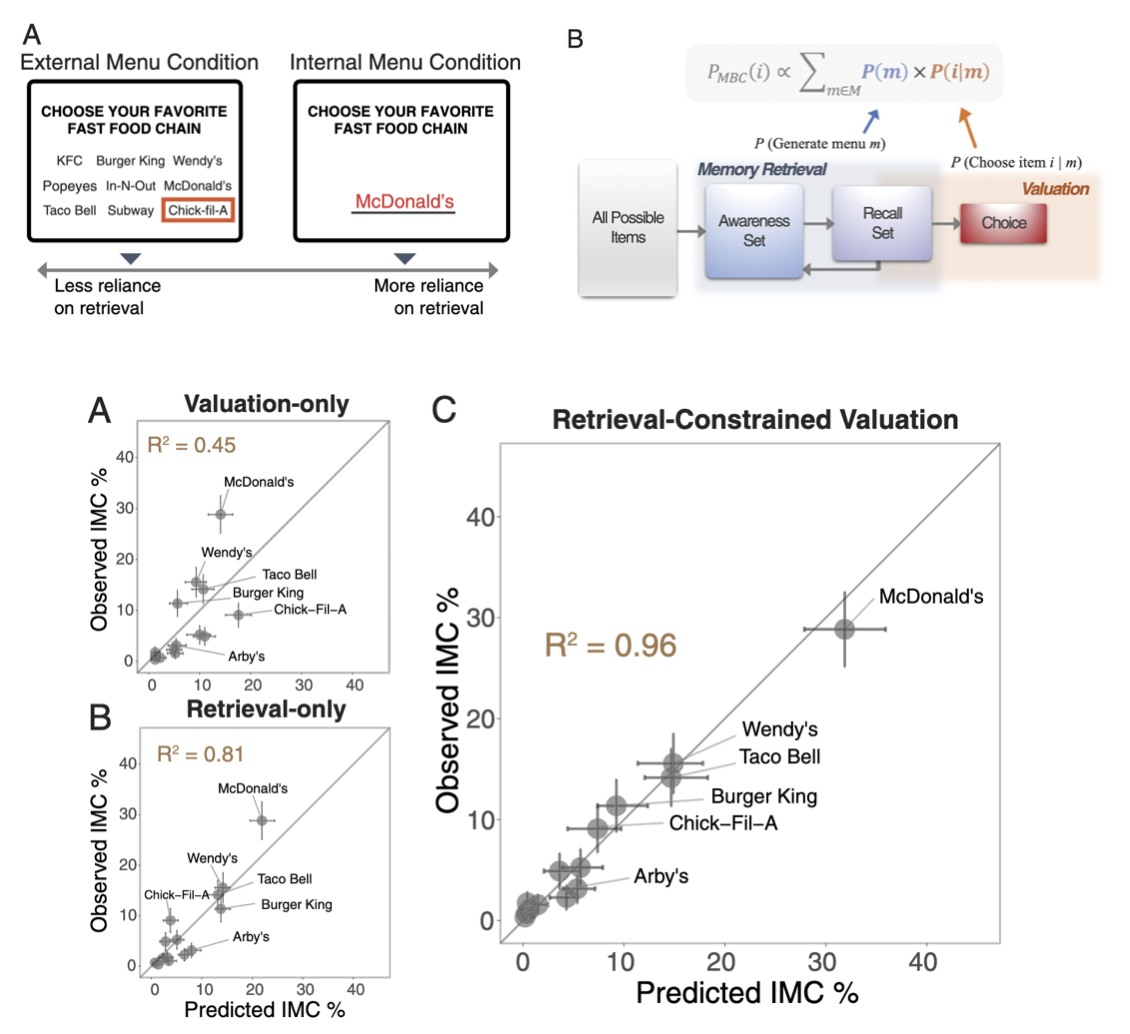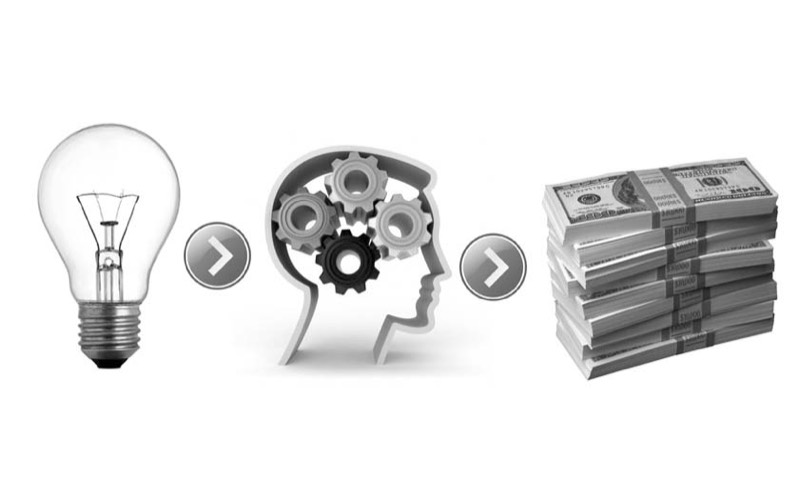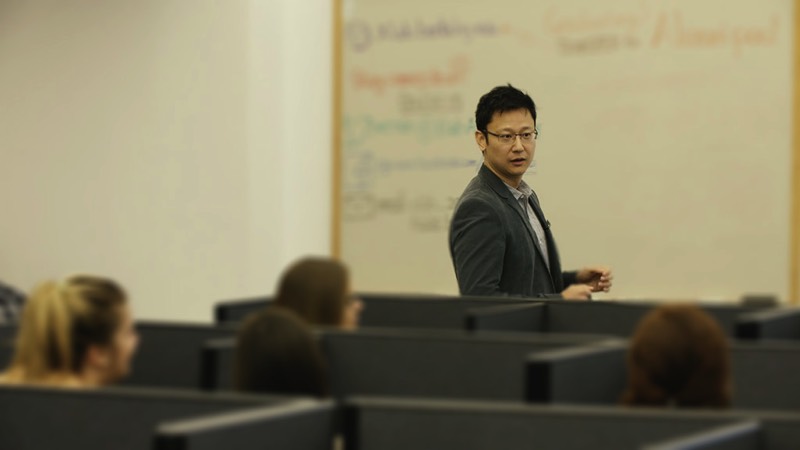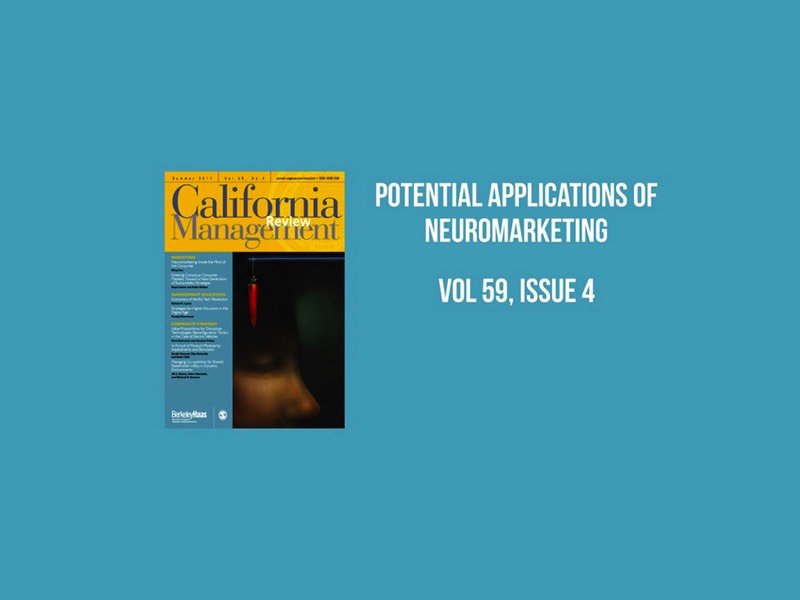Lab
Overview
Overview
Economic decision-making involves choices ranging from weighty ones such as purchasing a home to routine ones such as grocery shopping. An understanding of the biological basis of consumer choice is important not only scientifically, but also clinically due to disruptions of decision-making processes in neuropsychiatric disorders.
In our lab, we study these questions by combining ideas and tools from neuroscience, economics, psychology, and marketing. The goals of our research involves characterizing the underlying neural systems as well as molecular and genetic mechanisms.
In our lab, we study these questions by combining ideas and tools from neuroscience, economics, psychology, and marketing. The goals of our research involves characterizing the underlying neural systems as well as molecular and genetic mechanisms.
News
June 10, 2022
Marketing insights from text analysis: How can text illuminate how consumers think, feel, and act? This is a nascent but exciting area of research that combines the best of consumer research, cognitive science, and computer science. Take a look at this new survey paper in Marketing Letters if you are interested in this topic.
Berger, J., Packard, G., Boghrati, R., Hsu, M., Humphreys, A., Luangrath, A., Moore, S., Nave, G., Olivola, C., and Rocklage, M. "Marketing insights from text analysis". Marketing Letters, 2022.
Berger, J., Packard, G., Boghrati, R., Hsu, M., Humphreys, A., Luangrath, A., Moore, S., Nave, G., Olivola, C., and Rocklage, M. "Marketing insights from text analysis". Marketing Letters, 2022.
May 23, 2022
Neural representations of others’ traits predict social decisions: How does the brain represent stereotypes about others and how do stereotypes shape our social decisions? Take a look at our new paper to find out how we are beginning to unravel these processes using a combination of tools and ideas from neuroscience, social psychology, and behavioral economics.
Kobayashi, Kenji, Joseph Kable, Ming Hsu, & Adrianna Jenkins. “Neural representations of others’ traits predict social decisions”. Proceedings of the National Academy of Sciences, 2022.
Kobayashi, Kenji, Joseph Kable, Ming Hsu, & Adrianna Jenkins. “Neural representations of others’ traits predict social decisions”. Proceedings of the National Academy of Sciences, 2022.
August 16, 2021
Increased and biased deliberation in social anxiety: Social anxiety is something that many of us feel that we understand and can relate to. Certainly coming out the pandemic, social anxiety seems to be on everyone's mind now that social lives are getting back to normal (or at least some type of normalcy). At the same time, social anxiety is one of those tricky concepts that notoriously slippery and difficult to track in terms of its influence on our behavior. This paper with Nathaniel Daw's group, just published in Nature Human Behavior provides a novel computational approach to address these questions.
Hunter, Lindsay, Elana Meer, Claire Gillan, Ming Hsu, & Nathaniel Daw. “Increased and biased deliberation in social anxiety”. Nature Human Behavior, 2021.
Hunter, Lindsay, Elana Meer, Claire Gillan, Ming Hsu, & Nathaniel Daw. “Increased and biased deliberation in social anxiety”. Nature Human Behavior, 2021.
May 14, 2021
Retrieval-constrained valuation: Toward prediction of open-ended decisions: Life is not a multiple-choice test: Many real-world decisions leave goals, choice options, or evaluation criteria to be determined by decision-makers themselves. Although this may seem obvious, it may surprise many people to hear that standard models of decision-making does just that. Most models begin with an assumption that decision-makers know what options are possible and, as importantly, which ones are not. Likewise, most experiments provide a carefully curated menu of options, and often, information that aid people's evaluation and choice. In this paper, just published in Proceedings of the National Academy of Sciences, we provide a model that is able to break out of this age-old straitjacket by developing a neurally grounded cognitive model that can make strikingly accurate predictions of choices with self-generated options.

Zhang, Zhihao, Shichun Wang, Maxwell Good, Siyana Hristova, Andrew Kayser, and Ming Hsu. “Retrieval-Constrained Valuation: Toward Prediction of Open-Ended Decisions”. Proceedings of the National Academy of Sciences. 2021.

Zhang, Zhihao, Shichun Wang, Maxwell Good, Siyana Hristova, Andrew Kayser, and Ming Hsu. “Retrieval-Constrained Valuation: Toward Prediction of Open-Ended Decisions”. Proceedings of the National Academy of Sciences. 2021.



